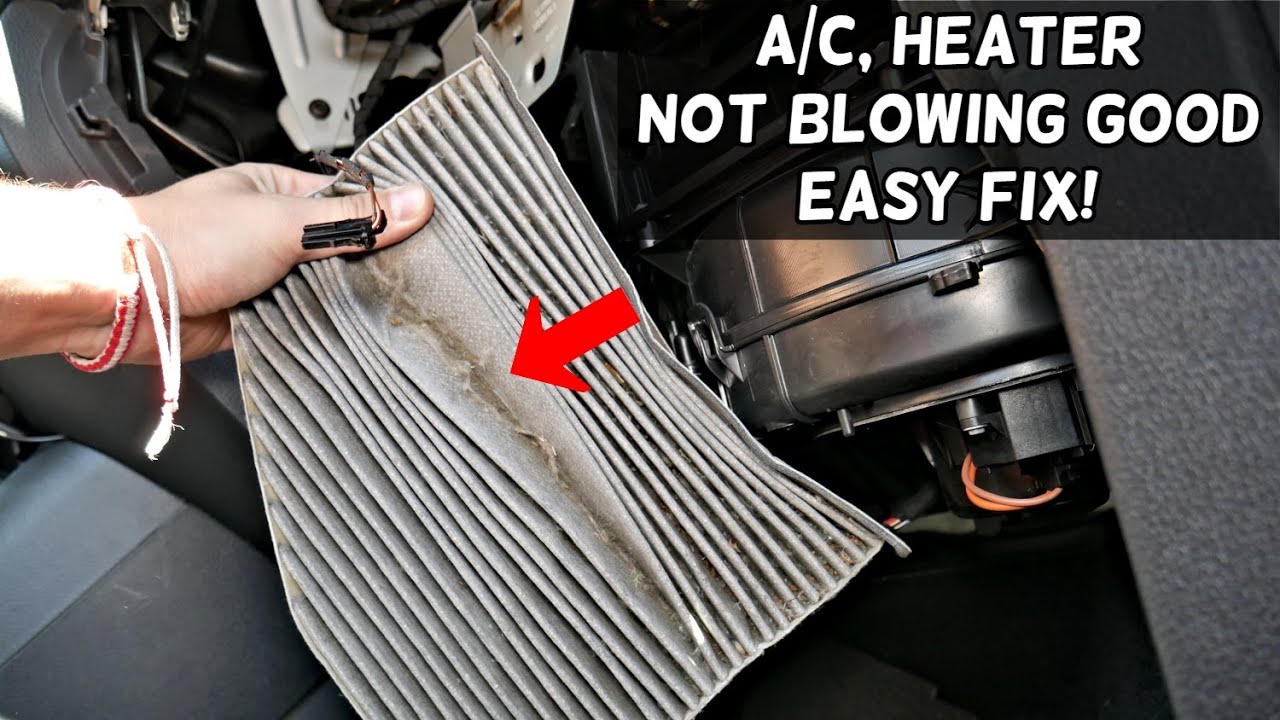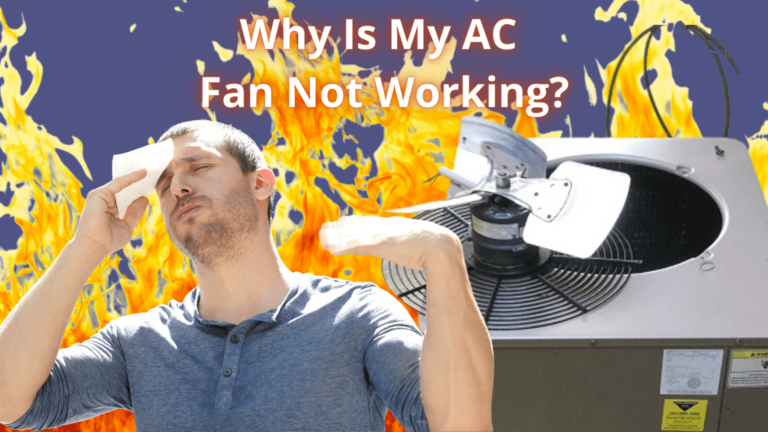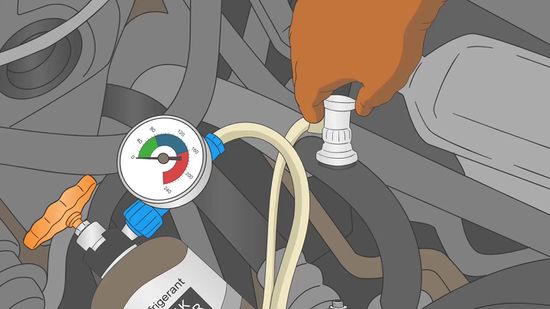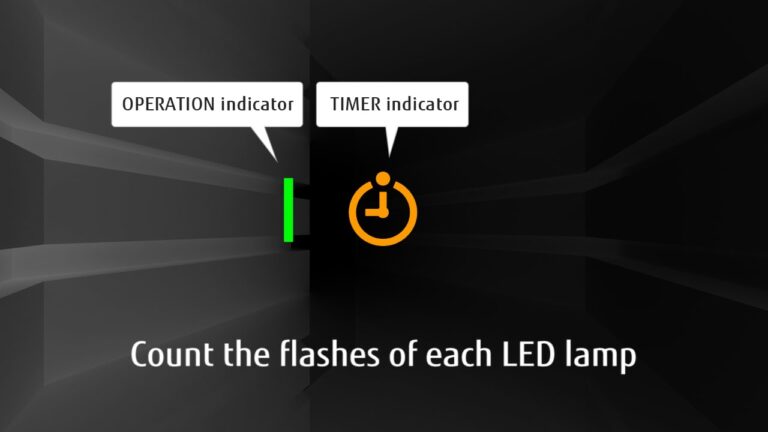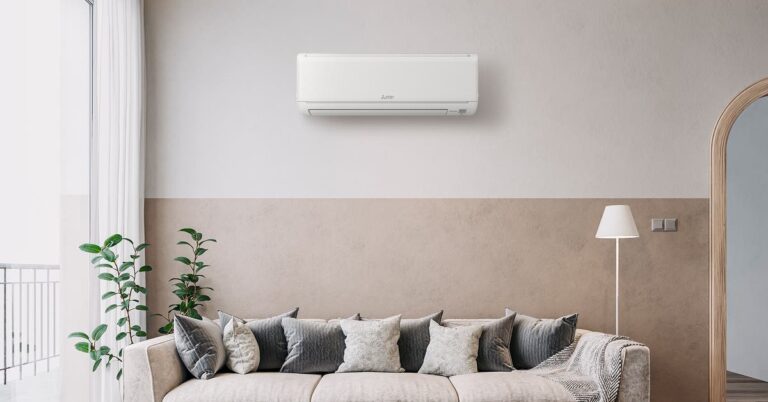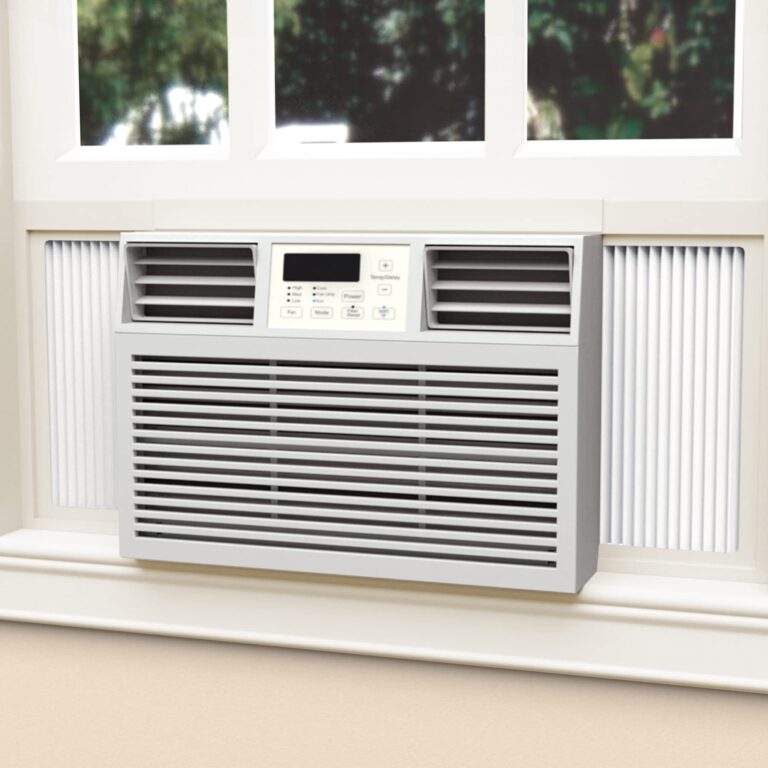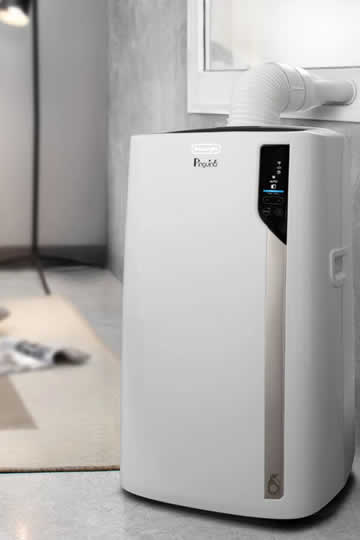Why Is My Car Air Conditioner Not Blowing Hard? Troubleshooting Tips
Your car air conditioner may not be blowing hard due to a clogged cabin air filter or a failing blower motor. These issues restrict airflow and affect cooling efficiency.
A weak car air conditioner can be frustrating, especially in hot weather. Several common problems can reduce the airflow from your car’s AC system. A clogged cabin air filter, a failing blower motor, or low refrigerant levels often cause this issue.
Regular maintenance can prevent these problems and ensure your AC operates at peak performance. Cleaning or replacing the air filter, checking the blower motor, and ensuring adequate refrigerant levels are essential steps. Addressing these common issues can restore your car’s air conditioning efficiency and improve your driving comfort.
Common Causes Of Weak Airflow
Is your car’s air conditioner not blowing hard? You may be frustrated. Let’s explore some common causes of weak airflow. Identifying the issue can help you fix it quickly.
Dirty Air Filter
A dirty air filter can restrict airflow. This filter collects dust, pollen, and debris. Over time, it becomes clogged.
Check your air filter regularly. Replace it as needed. Most manufacturers recommend changing it every 12,000 to 15,000 miles.
Blocked Vents
Blocked vents can also cause weak airflow. Items like books or bags may block the vents. Ensure nothing is obstructing them.
Inspect the vents for dust buildup. Clean them with a soft brush or vacuum. Keeping vents clear ensures proper air circulation.
| Common Causes | Solution |
|---|---|
| Dirty Air Filter | Replace the air filter |
| Blocked Vents | Remove obstructions and clean vents |
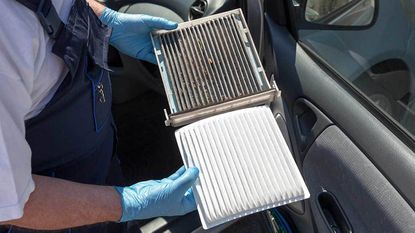
Credit: www.spectrumautogilbert.com
Checking The Blower Motor
If your car air conditioner is not blowing hard, the blower motor might be the issue. The blower motor is essential for moving air through the vents. A failing blower motor can reduce airflow and make the cabin uncomfortable.
Signs Of A Failing Blower Motor
- The air conditioner blows air weakly even at high settings.
- You hear unusual noises from the dashboard.
- The blower motor works intermittently or stops completely.
- The air conditioner only works at certain speeds.
How To Test The Blower Motor
- Check the fuse: Locate the fuse box and find the blower motor fuse. If the fuse is blown, replace it and test the AC.
- Inspect the relay: Find the blower motor relay. Swap it with a similar one to see if that fixes the issue.
- Test the motor: Use a multimeter to check the motor’s voltage. Connect the multimeter to the motor’s terminals. If there’s no voltage, the motor might be faulty.
- Examine wiring: Look for loose or damaged wires connected to the blower motor. Repair or replace any faulty wires.
- Direct power test: Disconnect the motor and apply direct power using jumper cables. If the motor does not run, it likely needs replacement.
By checking the blower motor, you can identify and fix the issue. This ensures your car’s air conditioner blows air hard and keeps you cool.
Inspecting The AC Compressor
Your car’s AC not blowing hard can be frustrating. One key part to check is the AC compressor. The compressor is the heart of the AC system. It pumps refrigerant through the system. If it fails, the AC won’t work properly.
Compressor Functionality
The compressor has several important functions. It compresses the refrigerant gas, turning it into a high-pressure, high-temperature gas. This gas then flows through the condenser. Here, it cools down and turns into liquid. The compressor then pumps this liquid through the system.
A functioning compressor ensures the AC blows cold air. If the compressor is weak, the airflow will be weak too.
Common Compressor Issues
Many issues can affect the compressor. Here are some common ones:
- Electrical Problems: Faulty wiring can stop the compressor.
- Refrigerant Leaks: Low refrigerant can damage the compressor.
- Clutch Issues: The compressor clutch may not engage.
- Mechanical Damage: Internal parts can wear out over time.
You can often hear a bad compressor. It may make grinding or squealing noises. If you suspect a problem, get it checked by a professional.
Examining The Refrigerant Levels
One common issue with car air conditioners is low airflow. This can be frustrating, especially on hot days. Examining the refrigerant levels is a key step in diagnosing this problem. Refrigerant is essential for the cooling process. Low levels can cause your AC to blow weakly.
Signs Of Low Refrigerant
There are several signs that your car’s refrigerant levels might be low:
- Weak airflow: The AC blows, but not strongly.
- Warm air: The air isn’t as cold as it should be.
- Hissing noise: A sound coming from the AC system.
- Ice on the compressor: Ice buildup on the AC compressor.
How To Refill Refrigerant
Refilling refrigerant can help fix the problem. Here is a simple guide:
- Buy a refrigerant refill kit: These are available at auto stores.
- Locate the low-pressure port: This is usually near the compressor.
- Attach the hose: Connect the hose from the kit to the port.
- Release the refrigerant: Follow the kit instructions to add refrigerant.
- Check the AC: Turn on the car and AC to test airflow.
These steps can help ensure your AC blows hard and cold again.
Diagnosing Electrical Problems
Is your car air conditioner not blowing hard? Electrical issues might be the culprit. These problems can prevent the AC from functioning correctly. Let’s dive into some common electrical issues that could be affecting your car’s air conditioner.
Blown Fuses
A blown fuse can stop the AC from working. Fuses protect the electrical circuit by breaking the connection if there’s too much current. Check the fuse box for any blown fuses related to the air conditioner.
| Location | Fuse Description |
|---|---|
| Under the Dashboard | AC Blower Fuse |
| Engine Compartment | Main AC Fuse |
Replace any blown fuses with new ones. Ensure the new fuse has the correct amperage rating. This simple step can solve the problem quickly.
Faulty Wiring
Faulty wiring can disrupt the power flow to the AC. Inspect the wiring for any visible damage. Look for frayed wires, burnt spots, or loose connections.
- Check wiring near the AC unit.
- Inspect the wiring harness.
- Look for signs of wear and tear.
If you find damaged wires, they need repair or replacement. Properly functioning wiring ensures a steady flow of power to the air conditioner.
Diagnosing electrical problems can restore your car’s AC performance. Ensure all components are in good condition. This will keep your air conditioner blowing hard.

Credit: m.youtube.com
Assessing The Condenser
Is your car air conditioner not blowing hard? The condenser might be the issue. The condenser plays a crucial role in the cooling system. Assessing it can help identify the problem.
Role Of The Condenser
The condenser cools down the refrigerant. It helps convert the refrigerant from a gas to a liquid. This process removes heat from the air. If the condenser is damaged, the air conditioner won’t work well.
Important: A damaged condenser can lead to poor air flow. It can also cause your car’s air conditioner to stop working.
Cleaning The Condenser
Dirt and debris can block the condenser. This can reduce its efficiency. Regular cleaning is important for its performance.
Follow these steps to clean the condenser:
- Turn off your car and let it cool down.
- Locate the condenser. It is usually in front of the radiator.
- Use a soft brush to remove loose dirt and debris.
- Rinse the condenser with water. Use a low-pressure hose.
- Dry it with a clean cloth. Make sure no water remains.
Tip: Clean the condenser every few months. This helps maintain your car’s air conditioning system.
| Step | Action |
|---|---|
| 1 | Turn off the car and let it cool. |
| 2 | Locate the condenser. |
| 3 | Remove dirt with a soft brush. |
| 4 | Rinse with low-pressure water. |
| 5 | Dry with a clean cloth. |
By keeping the condenser clean, you ensure your car’s AC works efficiently. This simple step can prevent major issues.
Evaluating The Evaporator Coil
Is your car air conditioner not blowing hard? The evaporator coil might be the issue. This component cools the air before it enters the cabin. If it’s dirty, airflow can be restricted. This can cause the air conditioner to blow weakly. Read on to learn the signs of a dirty coil and how to clean it.
Signs Of A Dirty Coil
A dirty coil can cause multiple problems. Here are some signs to watch for:
- Weak airflow: The air from the vents feels weak.
- Unpleasant smell: Musty or moldy odors when the AC runs.
- Ice on the coil: Visible ice or frost on the coil.
- Warm air: The air is not as cold as it should be.
How To Clean The Coil
Cleaning the evaporator coil can improve airflow. Here’s a simple guide:
- Turn off the car and open the hood.
- Locate the evaporator coil. It’s usually behind the dashboard.
- Remove any covers to access the coil.
- Use a soft brush to remove surface dirt.
- Spray coil cleaner on the evaporator coil.
- Let the cleaner sit for 15 minutes.
- Rinse the coil with water carefully.
- Replace any covers and close the hood.
Cleaning the coil can make your AC work better. It’s worth the effort!
When To Seek Professional Help
Experiencing issues with your car’s air conditioner can be frustrating. Sometimes, the problem is simple and can be fixed at home. However, there are instances when you need to seek professional help. Knowing when to call a professional can save you time and money.
Complex Electrical Issues
Car AC systems have many electrical components. Problems in the wiring or fuses can stop your AC from blowing hard. Diagnosing electrical issues requires special tools and expertise. A professional can safely check and fix these problems. Trying to fix electrical problems on your own can be dangerous.
Major Component Failures
Major components like the compressor, condenser, or evaporator can fail. These parts are crucial for your AC to work properly. Replacing or repairing these parts requires skill and experience. Professionals have the right tools to handle major component failures.
| Common Components | Signs of Failure |
|---|---|
| Compressor | AC not cooling, strange noises |
| Condenser | Overheating, reduced cooling |
| Evaporator | Strange smells, weak airflow |
Remember, seeking professional help can prevent further damage. It ensures your car’s AC runs efficiently. If you notice any major issues, contact a professional immediately.
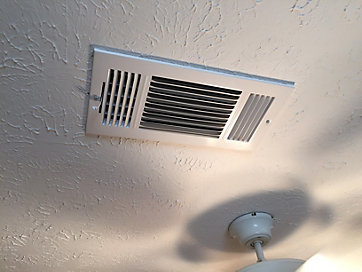
Credit: plumblineservices.com
Frequently Asked Questions
Why Is My Car AC Not Blowing Strong Enough?
Your car AC might not blow strong due to a clogged air filter, low refrigerant levels, or a failing blower motor. Check for blocked vents or a malfunctioning compressor as well. Regular maintenance helps prevent these issues.
Why Is My AC Not Blowing As Hard As It Should?
Your AC might have a dirty filter, blocked vents, low refrigerant, or a failing blower motor. Check and clean filters.
How Do You Fix A Weak AC Airflow?
Clean or replace the air filter. Check and clear any blockages in the vents. Inspect ductwork for leaks. Ensure the blower fan is working properly. Contact a professional for thorough maintenance.
Conclusion
Experiencing a weak car air conditioner can be frustrating. Regular maintenance is essential to avoid such issues. Check for common problems like clogged filters, refrigerant leaks, and faulty fans. Addressing these can restore your AC’s performance. Stay cool and comfortable by ensuring your car’s air conditioning system is in top shape.

